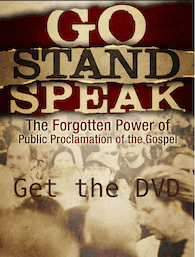In part one we distinguished the difference that our founders and framers understood between freedom and liberty within a Biblical context as applied to governance. There is little doubt that the majority of America's founders held a Christian worldview. Coming from the European background of oppression they understood that an individuals right to own property was paramount to a free, self governing people. Property ownership assures that individuals have an authentic interest in developing and maintaining an ordered society established upon the foundation of civil liberty.
The first slogan of the period leading up to America's independence was; “Liberty, property and no stamps" – referring to the stamp act. The first declarations, or resolves, of 1774 declared that the colonists were entitled to; “Life, Liberty and Property.” We know that phrase, after Thomas Jefferson re-wrote it to say; “Life, Liberty and the pursuit of Happiness.” But when he said the pursuit of happiness everyone knew that he was referring to the ownership of property. He was referring to that essential element of preserving civil liberty.
Jefferson later said; “The true foundation of republican government is the equal right of every citizen, in his person and in his property... In the American States every one, by his property, or by his satisfactory situation, is interested in the support of law and order."1
What Jefferson is saying here is that if you have property then you are interested in law and order. You are interested in the prosperity of the nation. You’re interested in good policies, just and lawful things. Those who own property have a stake in society; they are concerned to maintain liberty. Therefore the order of society is something that is of great interest to them.
They would say, and the cultural understanding was, that Liberty was seen as being dependent upon property not equality. The founders knew that liberty insured inequality. Property was the safeguard of liberty, or, as Stephen Hopkins had said in 1764, "...they who have no property can have no freedom, but are indeed reduced to the most abject slavery... " 2
This is in stark opposition to the doctrine that drove the French Revolution, which seems to be working in to America today. Our founders and framers were wise enough and Biblical enough in their thinking to realize that liberty and equality were absolutely incompatible. They could not coexist.
My concern is that not enough people understand this today. This is the reality, if there is going to be liberty there can not be equality because God has given different gifts to individuals, some may have the same gifts but to varying degrees. People are given different gifts and attributes, inequality is God ordained. We should be thankful for this and recognize the good derived from His design.
The only way to have equality is to destroy liberty. So if we have equality we can not have liberty. If you have liberty you will never have equality.
Again, our founders and framers understood this God ordained truth that there is simply no way that equality could coexist with liberty and they never desired equality in this country. Understand that they were addressing the civil realm as subordinate to the Gospel and grace of God.
The universal equality movement is one of the largest threats to our country. It is one of the instruments being used to destroy our liberties and promote the advancement of socialism.
Universal equality ushers in a welfare mindset which undermines the importance of property ownership and personal responsibility which in turn compromises liberty as understood by the founders and framers of our nation.
End notes:
1) Catherine Drinker Bowen, Miracle at Philadelphia pp. 71, 72
2) The Rights of the Colonies Examined – Stephen Hopkins 1764: http://teachingamericanhistory.org/library/index.asp?document=2428
Freedom vs. Liberty - Part 1
Freedom vs. Liberty - Part 1






comments
0 Responses to "Freedom vs. Liberty (Part 2)"Post a Comment